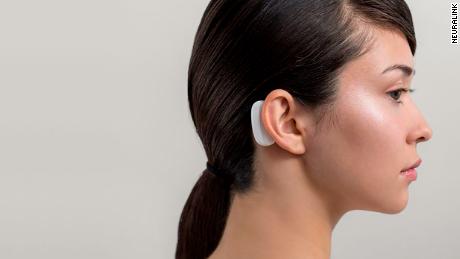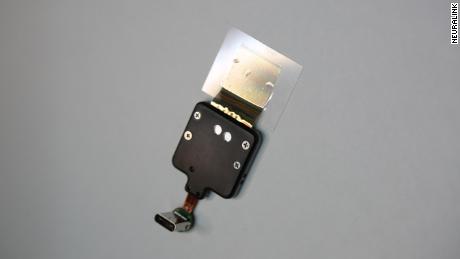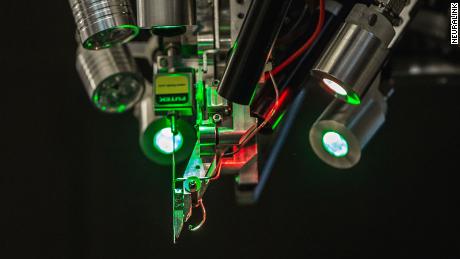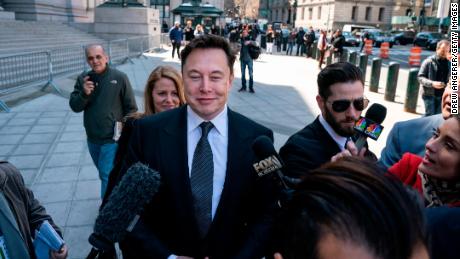Elon Musk hopes to put a computer chip in your brain. Who wants one CNN
Musk hopes the implant, created through his brain-laptop interface startup Neuralink, could in the future help quadriplegics manage smartphones, and perhaps even endow customers with a kind of telepathy. Like present brain-device interfaces, it might acquire electrical indicators despatched out by using the mind and interpret them as moves.

Neuralink, which turned into based in2019, has already examined an early, stressed out version of this implant in rats (and Musk indicated it has enabled a monkey to manipulate a pc along with his brain, too); Musk stated human trials may want to start by the stop of next 12 months, even though the business enterprise doesn't but have approval from the USA Food and Drug Administration for one of these have a look at. (And, it have to be cited, Musk, who is also CEO of Tesla and SpaceX, has a history of making outlandish technological claims: for example, the he said in a recent interview that getting humans to Mars in 4 years "sounds doable.")
Neuralink's promise of a brain-related tool that appears as nondescript as a listening to aid — the form of factor you may conceal with hair or a hat — is interesting to scientists who've spent years working in this technology.
"The wellknown idea and their motivation, I suppose, are spot on," stated Andrew Schwartz, a professor of neurobiology on the University of Pittsburgh and pioneer in the mind-machine interface discipline.
And, in reality, some of professionals instructed CNN Business that Neuralink should, within the coming years, be a boon for people with situations inclusive of quadriplegia, allowing accelerated independence and ushering doubtlessly existence-transforming era out of the lab and into the real international.
But will or not it's, as Musk envisions, the sort of tool that the common character will sooner or later join up for, too? Probably now not, Schwartz and other experts who spoke with CNN Business agreed.
How a brain chip could help
The idea of a mind-device interface isn't always new; scientists were running on them for decades, and that they have been implanted and examined in animals which includes monkeys in addition to in people. There are a few FDA-accepted deep-brain stimulation gadgets supposed for, among different matters, controlling tremors in human beings with Parkinson's sickness, and numerous tech groups have labored on their personal techniques for connecting the brain to computers: Facebook, as an example, has labored on a non-invasive device to allow you to send text messages by means of thinking.

Yet these efforts have a tendency to be constrained to labs for a number of motives: they are steeply-priced, cumbersome, require training (of both the user and the pc), and, in terms of an below-the-cranium implant, the character equipped with it typically ought to be bodily tethered to a laptop for it to paintings.
Virginia de Sa, a professor reading mind-computer interfaces at the University of California San Diego, stated numerous of Neuralink's thoughts sound "very promising," which include the use of very quality wires to implant electrodes inside the mind — the thinner they may be, she said, the less damage they may do to the mind, and, with any luck, the longer they may last.
Schwartz sees the capacity in Neuralink's layout, in particular its plans to miniaturize the additives of the implant, make it wi-fi, and improve the electrode era.
He believes the wireless element of it's miles key, noting that obtaining FDA acclaim for such an implant includes a chance evaluation, and the riskiest part of modern-day brain-laptop interfaces entails a connector that comes through the patient's pores and skin to hyperlink the implant to a computer.
"By putting off that entire element, it becomes a far safer technology," he stated, because it reduces the threat of an contamination inside the affected person.

Neuralink president Max Hodak stated during the presentation that the corporation's plan for its first product includes it being capable of manipulate mobile devices and a keyboard or mouse, though he mentioned that, as of now, "those are aspirations."
It doesn't sound outlandish, even though. Schwartz has already worked with structures which can allow paralyzed sufferers pick up gadgets with a robotic hand or even get a few sensory comments (Musk said Tuesday that Neuralink's device would also be able to each examine mind alerts and ship comments). He can consider that, a few day within the future, someone with a excessive impairment who's outfitted with a device consisting of the one Neuralink mentioned should come to be a whole lot more independent.
A paralyzed person, as an instance, might nonetheless be sitting in a wheelchair, he said, however perhaps that they had be capable of drive it by means of wondering as opposed to using a joystick, and even manage a prosthetic arm linked to the chair as properly.
"They ought to potentially do their very own laundry," he stated.
It's nonetheless mind surgery
During his presentation, Musk said Neuralink pursuits to make the surgical operation for the employer's implant "equivalent to a LASIK form of component where you take a seat down, a machine does its element, and you could walk away inside some hours," all with out a health center stay.
He spoke approximately the wires that could be implanted below someone's skull as threads; a robotic for implanting them would skip blood vessels and reason "minimal trauma," he claimed.

It sounds easier than the manner people receive implants these days. Essentially, as matters work now, the cranium is reduce open, the mind is exposed, chips are installed, connectors are set up to the cranium, and the top is stitched up.
Yet the reality is that implanting a device under the cranium will remain mind surgical treatment. Neuralink acknowledges it's going to nevertheless want to bore a hole for your skull, for instance.
"It's nonetheless surgical operation; it's still volatile," de Sa stated. "People can die in even the handiest surgical procedures."
Beyond the risks of a clinical manner, there are protection issues, too. Nataliya Kosmina, a postdoctoral associate on the MIT Media Lab, said she "freaked out" while she noticed the portion of the presentation in which Neuralink president Max Hodak noted that the implant is meant to be controlled with an iPhone app; she mentioned that a person hacking into such an app could be a ways extra risky than if they had been to, say, hack your financial institution account.
"As tons effort and time as we're all going to spend to make those sorts of gadgets and implants on hand and safe and placed them out there, we'd need to spend the equal quantity of time and electricity on first, ethical troubles, and second, privateness and protection," she stated.
Who will need one?
For now, Neuralink said it's far working on a mind chip to help with extreme scientific situations, however Musk in the end wishes it to attraction to all styles of humans. Several specialists said they can not envision the general public clamoring for Neuralink's brain chip, however.
"It's actually like a type of a technological know-how-fiction vision that gets a few people enthusiastic about it, but I don't see the marketplace for something like that," said Andrew Hires, an assistant professor of neurobiology at USC. "The technological improvement would must move so far beyond what would currently be capable with a device like this."
Schwartz agreed, pronouncing that even as scientists can decode pretty complicated brain indicators associated with, say, how we flow our fingers and palms, they may be just starting to recognize matters consisting of a way to practice pressure to items or manage them in the actual international.
When it comes to greater futuristic applications of the era to such things as concept transmission, reminiscence enhancement or working with artificial intelligence, he stated, "we're nowhere close to understanding some thing like that."
//www.cnn.com/2019/07/20/tech/elon-musk-neuralink-mind-chip-experts/index.html
2019-07-20 thirteen:57:00Z
CAIiEHZMTVnE_eIt61SfoYH1LUkqGQgEKhAIACoHCAowocv1CjCSptoCMKrxrwU


0 Response to "Elon Musk hopes to put a computer chip in your brain. Who wants one CNN"
Post a Comment